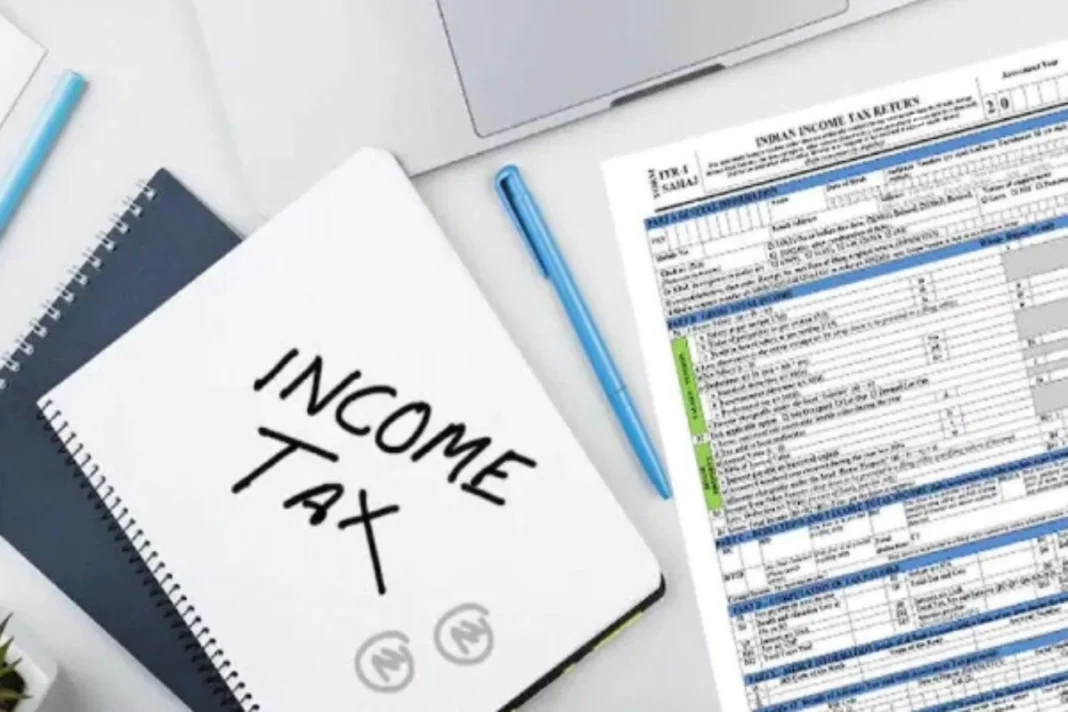Income Tax News: A woman who failed to file a return on her income of Rs two crores was found guilty and sentenced to six months in prison by a Delhi court recently. This case concerns a complaint that the Income Tax Office (ITO) filed, claiming that TDS (tax deducted at source) of Rs. Two lakh was deducted against the accused’s receipt of Rs. Two crore during the 2013–14 financial year, even though the assessee/accused failed to file a return of income for the assessment year 2014–15.
Sentencing by ACMM Mayank Mittal
After reviewing the case’s facts and circumstances and hearing submissions, Additional Chief Metropolitan Magistrate (ACMM) Mayank Mittal sentenced Savitri. “The convict is awarded a sentence of simple imprisonment for six months with a fine of Rs 5,000 and in default to undergo simple imprisonment for one month,” ACMM Mittal said in the order passed on March 4.
But after reviewing her appeal, the judge allowed her 30 days’ bail to contest the order. The goal of the provision, not the amount of tax avoided, is what matters for imposing a punishment on a convicted person, according to Special Public Prosecutor (SPP) Arpit Batra. It was further argued that the provision’s goal is to discourage those who are obligated to pay taxes from failing to timely file their income returns and pay the taxes due.
Defense’s Plea for Significant Fine and Maximum Jail Sentence
Additionally, he argued that a significant fine and the maximum sentence of jail ought to be imposed on the guilty party. Alternatively, the prisoner’s attorney argued that the prisoner’s social background and state at the time of the crime and the imposition of the sentence should be taken into consideration when determining the appropriate penalty.
It was stated that the prisoner is an illiterate widow. The convict is the only one responsible for providing for the criminal’s family. According to the prosecution, the accused did not submit a response to the ITO’s September 11, 2017, letter requesting confirmation of whether or not the income tax return for the assessment year 2014–15 was filed.
Notice under Section 142(1) – Unheeded by the Accused
The accused received a notice dated January 10, 2018, directed to provide the assessment year 2014–15 return under Section 142(1) of The Income Tax Act, 1961 (IT Act), however the accused and assessee failed to comply, according to the prosecution. After then, on January 22, 2018, the accused received a notification from the ITO under Section 271F of the IT Act for failing to file the return, and the accused neglected to respond to the notice.
Consequently, a ruling dated February 9, 2018, mandated that the accused make good on a Rs 5,000 penalty. The Principal Commissioner of Income Tax received a request for a sanction grant. She was given a show-cause notice under Section 276CC of the IT Act prior to the imposition of a sanction. On March 18, 2018, the convict’s authorised representative filed a reply on her behalf.
Sanction Order by Principal Commissioner
The Principal Commissioner of Income Tax, New Delhi, issued a sanction order allowing the prosecution of the accused after taking the matter into consideration and providing the convicted party with ample opportunity. The order also instructed the Income Tax Officer to file the current complaint under sections 276CC and 279 of the IT Act.
Savitri was found guilty on February 28 by the court. The court stated that the complainant had proven, beyond a reasonable doubt, that the accused had received notices from September 11, 2017, and January 10, 2018, under Section 142(1) of the Act, requiring the accused to file a return of income that, it was acknowledged, had not been filed.
Denial of Presenting Evidence under Section 276CC
The accused was also not permitted to present any evidence or facts to the court in order to support their position under the provisions of Section 276CC of the Act, the court ruled. Additionally, under Section 278E of the Act, the accused was not permitted to submit any evidence to refute the assumption of responsible mental condition.
” Accordingly, the accused is held guilty of not filing the return of income for the assessment year 2014-15 under Section 276CC of The Act. Accordingly, the accused is convicted foran offence punishable under Section 276CC of the Act,” the court said in the judgement.
What To Do To Prevent Punishment
People should make timely income tax return filing a priority and follow their financial obligations in order to avoid suffering similar outcomes. To prevent punishment, follow these crucial steps:
Timely Filing: Make sure income tax returns are filed on time and by the deadline. Penalties and other legal consequences may result from delays.
Compliance with TDS Regulations: Respect the Tax Deducted at Source (TDS) laws and submit your TDS returns on time. If you don’t, you can face criticism and legal action.
Maintain Accurate Financial Records: Maintain thorough and precise records of all your financial transactions, earnings, and outlays. During assessments, this record is an essential piece of evidence.
Respond to Official Communications: React as soon as possible to notifications and correspondence from tax authorities. Such notices might be ignored, and failing to respond to them can worsen the problem.


